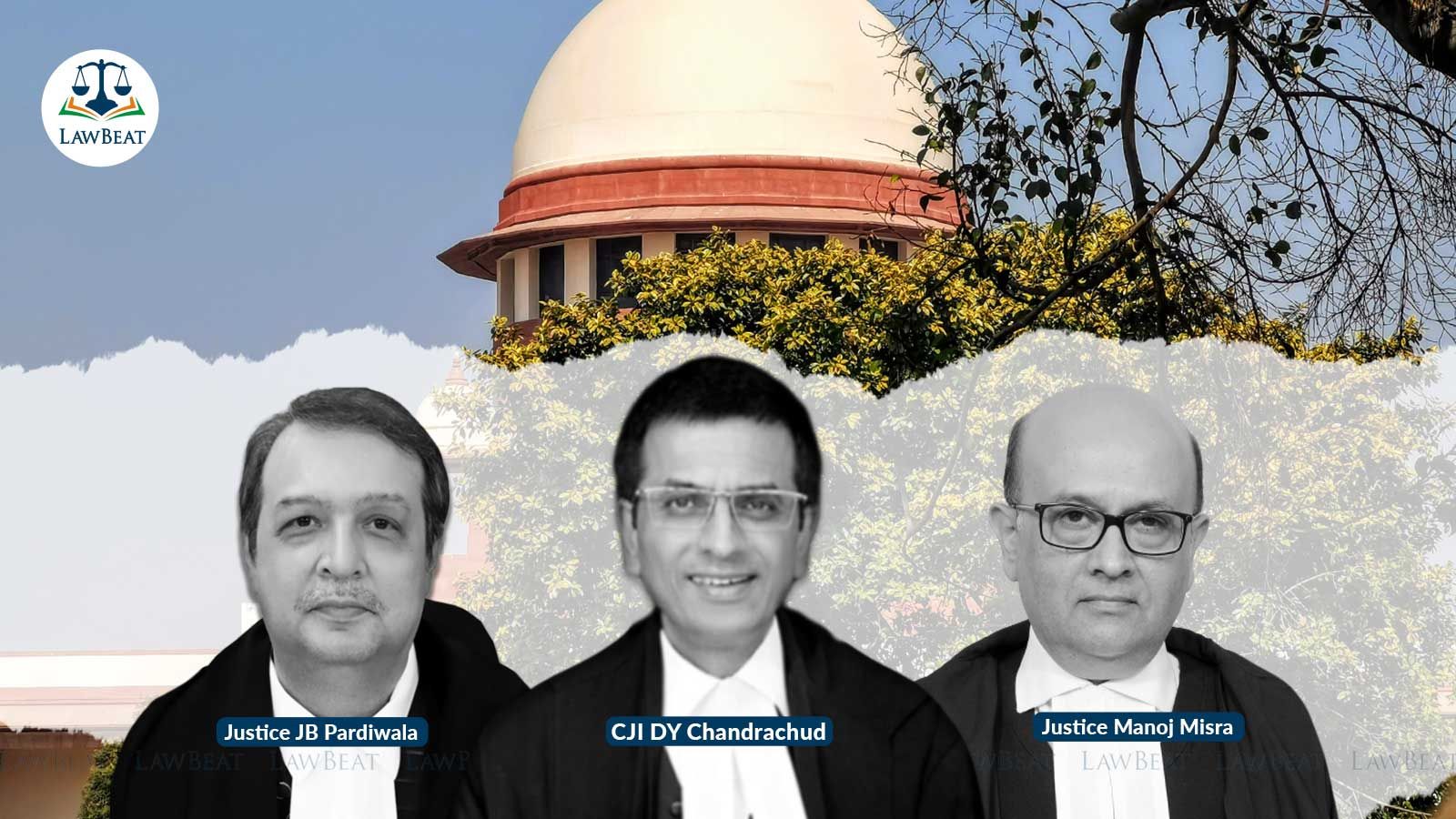'Lacks trapping of arbitral forum': SC says dispute on agreement can't be sent to employee for arbitration

The matter pertained to the referral of a dispute between Solaris Chem Tech Industries Ltd, manufacturing caustic soda, and the Karnataka Urban Water Supply and Drainage Board over the price of water supplied for industrial and nondomestic use, to Chief Engineer (North), K.U.W.S. & D Board, Dharwad
The Supreme Court has said that a dispute arising out of parties of an agreement cannot be referred to an employee of one of the parties as he lacks the trappings of an arbitral forum and cannot be regarded to as impartial.
A bench of Chief Justice of India D Y Chandrachud and Justices J B Pardiwala and Manoj Misra set aside the Karnataka High Court's single as well as division bench decisions to refer a dispute between Solaris Chem Tech Industries Ltd, manufacturing caustic soda and the Karnataka Urban Water Supply and Drainage Board over the price of water supplied for industrial and nondomestic use.
"In the present case, the agreements do not postulate that the Chief Engineer would adjudicate upon the disputes between the parties nor is there any provision to the effect that the Chief Engineer would resolve the dispute after letting in evidence or allowing the parties an opportunity of presenting their respective cases before them," the bench said.
"The forum comprising the Chief Engineer lacks the trappings of an arbitral forum. More importantly, the Chief Engineer is an employee of the Board," the bench pointed out.
The Clause 11.1 of the agreement stipulated that all disputes or differences that may arise between the parties pertaining to the meaning of any provision in the agreement or in connection with it, would be resolved by mutual discussion. However, if mutual discussions fail, Clause 11.2 postulated that all such disputes which arise between the Board and the consumer pertaining to the meaning of the provisions of the agreements would be resolved by referring the matter to the Chief Engineer (North), K.U.W.S. & D Board. whose decision would be final and binding.
Bearing in mind the provisions of the Arbitration and Conciliation Act 1996, the bench said, "We are of the view that Clause 11 does not constitute an arbitration agreement."
"It is well settled that in determining whether there is an arbitration agreement, the terms of the contract between the parties must be read as a whole. The 1996 Act does not prescribe a certain form of an arbitration agreement. The use or the absence of the word ‘arbitration’ is not conclusive and the intention of the parties to resolve the disputes through arbitration should be clear from the terms of the clause," the bench said.
The court noted that though the single judge bench was of the view that Clause 4 of the agreement empowered the Board to revise its rates, nonetheless, without dealing with the power and the manner of its exercise any further, the high court relegated the appellant to the remedy under Clause 11 before the Chief Engineer.
"Once we have come to the conclusion that the provisions of Clause 11 do not constitute an arbitration agreement, the corollary is that the High Court ought not to have relegated the parties to the Chief Engineer on the strength of Clause 11. It would have been appropriate if the High Court had finally determined the challenge addressed by the appellant in the writ proceedings under Section 226 of the Constitution. Though the Single Judge has adverted to Clause 4, evidently there is no final determination in that regard," the bench said.
The court also found that the judgment of the division bench had exclusively relied on the provisions of Clause 11 while coming to the conclusion that the dispute between the parties fell within the ambit of the clause.
"The fundamental aspect of the matter, however, is that the provision for settlement of disputes which is contained in Clause 11 does not constitute the Chief Engineer as an arbitral tribunal since he cannot be regarded as an impartial officer nor do the provisions of Clause 11 incorporate the trappings of an arbitral tribunal," the bench said.
The court allowed the appeal and restored the writ petition to the file of the single judge of the Dharwad bench for a decision afresh.
The bench also clarified that it had not expressed any view on the merits of the case which was sought to be set up by the appellant in the writ petition or on the defence, urged on behalf of the respondents.
The court was also informed of the fact that in the meantime, the appellant had been taken over by the Aditya Birla Group, which had continued to pay the revised water rates and had cleared the arrears while reserving its rights to avail of the remedies.
The bench ordered the appellant to continue to pay the rates as fixed by the Board from time to time subject to such final orders as may be passed by the high court in the writ petition restored to the file of the high court.
Case Title: Solaris Chem Tech Industries Ltd Vs Assistant Executive Engineer Karnataka Urban Water Supply and Drainage Board & Anr.
